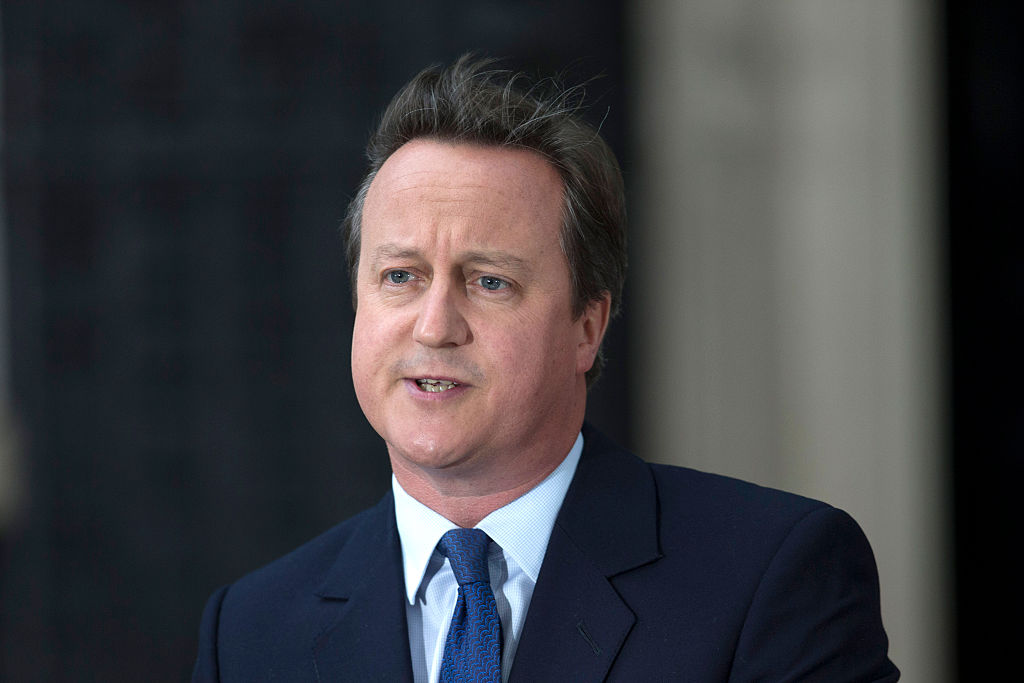On the day that senior Treasury officials and the Bank of England revealed quite how much David Cameron lobbied them last spring on behalf of Greensill for access to emergency loan schemes, I want to share important disclosures made in recent weeks that suggest Greensill was heading for collapse over many months.
These represent the financial – as opposed to the political – side of this debacle, which has largely been ignored because of widespread outrage at the way David Cameron exploited his connections in government and the civil service to lobby for Greensill’s cause.
What I want to focus on is what I see as the big unanswered question, for Greensill’s eponymous founder, Lex Greensill, for David Cameron, for regulators, for politicians: precisely how long before Greensill collapsed formally into insolvency in March did they know of its parlous state?
This really matters, because all through last spring Cameron and Greensill were piling pressure on the Treasury and Bank of England for Greensill to have access to funding from taxpayers through an important credit scheme, the Covid Corporate Financing Facility.
Although their urgent requests to be allowed to use the Covid Corporate Financing Facility were rejected, on 10 June 2020 Greensill was given hugely valuable government underwriting when it was accepted by the British Business Bank – a nationalised bank – as a provider of invoice finance through the Coronavirus Large Business Interruption Loan Scheme. This meant it could lend money with the risk of loss shouldered by the state.
What these disclosures show, is that Greensill had been in serious difficulties for some time
So here, in no particular order of importance, are relevant disclosures that suggest Greensill’s collapse had been coming for some considerable time.
1) Today in Australia, there was a vote by the creditors of Greensill’s holding company to liquidate the company. In making the decision, the creditors were told by the company’s administrators Grant Thornton that it was unable to ascertain whether or not Greensill’s holding company had been trading while insolvent. It said investigations would continue.
2) On March 3, the German banking regulator BaFin said of Greensill’s German bank that ‘during a forensic audit, BaFin found that Greensill Bank AG was unable to provide evidence of the existence of receivables in its balance sheet that it had purchased from the GFG Alliance Group.’ In other words, the regulator was concerned that assets supposedly underpinning billions of euros in deposits did not exist.
By way of important background, GFG Alliance was Greensill’s most important client. GFG is Sanjeev Gupta’s group of global businesses, including important and famous steel plants in the UK. Greensill’s core business was buying invoices at a discount and then selling them in packages as commercial paper or bonds to investors. It did this on a huge scale for GFG Alliance, thereby providing it with crucial credit over the many years of its expansion.
Billions of pounds of these invoices packaged into bonds were bought by four investment funds created by the bank Credit Suisse, which are now being wound up.
3) This business of buying these invoices and selling them packaged into bonds to investors was viable largely because the risk of non-payment of invoices was insured away by a specialist Australian insurer, Bond & Credit Company.
BCC wrote around £6bn of policies for Greensill.
On May 28, 2020, BCC’s Japanese parent company, Tokio Marine, in effect killed off Greensill’s ability to raise money in this way. According to an email sent in July by Tokio Marine’s lawyer, the insurer informed Greensill on that date in May that it would take on no new exposures to Greensill, there would be no extensions, and that ‘all existing limits on Greensill buyers have been set to nil in our policy system.’ A few weeks ago, Tokio Marine confirmed that ‘BCC notified Greensill and its broker in mid 2020 that we would not renew, increase limits, extend or underwrite new policies.’
4) Emails disclosed by the Bank of England on Thursday include Lex Greensill warning on 15 March last year it was becoming difficult to sell the commercial paper backed by invoices that was Greensill’s core source of finance. He said that ‘in the last week we have seen a great many fixed income investors who support the asset class step back – meaning liquidity could well become a major issue.’ As a result, on March 16, he asked the deputy governor of the Bank of England Sir Jon Cunliffe to create a £20bn facility to buy these bonds, as a backstop. The Bank ultimately refused – despite considerable pressure from David Cameron, who described Greensill as having ‘the mandate for the UK government’ in providing ‘supply chain finance.’
5) However, as I mentioned earlier, the British Business Bank – another arm of government – did give financial guarantees to Greensill. On Thursday, the British Bank sent me this statement. ‘All accredited lenders are subject to audit by the British Business Bank to ensure their compliance with scheme rules. If serious non-compliance is identified, the Bank is entitled to take remedial action. Such action might include termination of the Guarantee Agreement or withdrawal of the Guarantee. It would not be appropriate to comment further in Greensill’s case given there is an ongoing investigation.’
The bit of this that matters is the last sentence, which says that the bank is investigating whether Greensill was in ‘serious non-compliance’ with its rules.
I am aware this is all quite complicated. Sorry. But what these disclosures show, is that Greensill had been in serious difficulties for some time.
The unanswered question, which a series of investigations all over the world are seeking to answer, is whether Greensill and his colleagues – including his part-time employee David Cameron – should have been aware of and should have disclosed the magnitude of the risks they were taking many months ago.







Comments